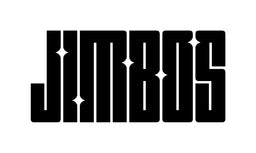Why Deionized Water Prevents Water Spots Entirely
Tired of chasing water spots every time you wash your car? The secret isn’t a new towel or product — it’s the water itself. Deionized (DI) water removes minerals that cause spotting, giving you a truly spot-free rinse and a flawless finish every time. In this guide, we’ll break down how it works, why it’s worth it, and how to use it with The Super Soaper and Tough As Shell for the perfect wash routine.
Estimated Reading Time: ~9 minutes
What Is Deionized Water?
Deionized water (DI water) is water that has had all its dissolved mineral ions — like calcium, magnesium, sodium, and chloride — completely removed through an ion-exchange process. These are the same minerals that cause hard water and leave behind white, chalky residue when water evaporates.
Because DI water contains zero total dissolved solids (TDS), it leaves no residue when it dries. That means even if you let your car air-dry in the sun, it won’t leave spots behind.
Why Regular Water Causes Spots
Every drop of tap water contains minerals. When the water evaporates, those minerals remain — forming visible rings, stains, or etching on paint, glass, and trim. This is what we call “hard water spotting.”
The harder your water (higher mineral content), the faster and more severe those spots form. Some cities measure over 400+ ppm TDS (parts per million), making spots nearly impossible to avoid without filtration.
How Deionized Water Prevents Water Spots
Because DI water has no minerals, there’s nothing left behind after it dries. Instead of mineral deposits, you get a completely clean surface — no residue, no haze, no marks. This is why professional detailers, car washes, and body shops use DI systems for their final rinse.
The difference is visible immediately:
- → No need to rush drying before the sun hits.
- → Reduced towel contact, lowering the risk of swirl marks.
- → Crystal-clear glass and spotless paint every time.
DI Water vs. Regular Water: Real-World Comparison
| Feature | Regular Tap Water | Deionized Water |
|---|---|---|
| Mineral Content | High (100–400 ppm) | Zero (0 ppm) |
| Water Spot Risk | Very High | None |
| Surface Clarity | Often hazy or streaky | Crystal clear |
| Drying Speed | Must towel dry fast | Can air dry spot-free |
How to Use DI Water in Your Car Wash Routine
Most home detailers integrate a small, portable DI system into their hose line. Here’s the best way to use it:
- Wash with tap water first: Save your DI water for rinsing — it’s more efficient.
- Use The Super Soaper: Pre-soak the car to loosen dirt and break down grime.
- Rinse with DI water: Once the wash is complete, switch to DI for your final rinse.
- Air dry or blow dry: You can safely let it air dry in most conditions without spots.
Boost Spot-Free Results with The Super Soaper
The Super Soaper pairs perfectly with DI water, helping lift dirt and reduce contact wash risk for a truly safe and efficient wash.
Buy on Jimbo’s Detailing Buy on AmazonSetting Up a Home DI System
Setting up your own DI system is easier than most people think. Here’s what you need:
- → A portable DI tank or inline filter system
- → Hose adapters or quick-connect fittings
- → TDS meter to monitor water quality
- → Resin refills (replace when TDS exceeds 20 ppm)
Connect your DI filter inline with your garden hose or pressure washer and use it for your final rinse. Most systems are refillable and last for months before needing new resin.
Pro Tip: Combine DI Water with Ceramic Protection
Using DI water dramatically reduces water spotting, but pairing it with a ceramic spray like Tough As Shell takes it to the next level. The slick surface prevents mineral adhesion entirely — even if you wash with tap water later.
Seal the Deal with Tough As Shell
Lock in a slick, hydrophobic barrier after every DI rinse with Tough As Shell Ceramic Spray — your best defense against future water spotting.
Buy on Jimbo’s Detailing Buy on AmazonBenefits of Washing with DI Water
- → Zero water spots — even in direct sunlight.
- → Less towel contact = fewer swirls.
- → Ideal for ceramic-coated and matte finishes.
- → Saves time drying — water sheets off easily.
- → Extends the life of your detailing products.
Related Reading
- How to Remove Hard Water Spots from Car Paint
- Best Products for Water Spot Removal on Coated Cars
- Pure Magic Cleaner Review – Does It Really Work?
- How to Prevent Water Spots When Washing at Home
FAQs
What’s the difference between deionized and distilled water?
Distilled water removes impurities through boiling and condensation, while deionized water removes all mineral ions through a resin filter. DI water has zero TDS and is ideal for spot-free rinsing.
Can I wash my entire car with DI water?
Yes, but it’s best to use it only for the final rinse to save resin life. Wash with tap water first, then switch to DI for your last rinse.
How long does DI resin last?
Depending on water hardness and usage, most DI cartridges last between 300–1,000 gallons before replacement.
Is DI water safe for ceramic coatings?
Absolutely — it’s the best water you can use. It leaves coatings clean, clear, and streak-free.
Do I still need to dry after using DI water?
You can let it air dry safely, but using a blower or towel speeds up the process and prevents dust settling.



